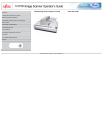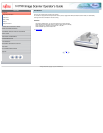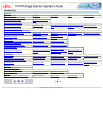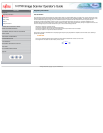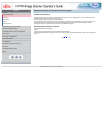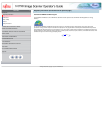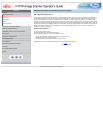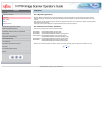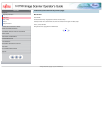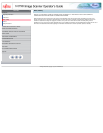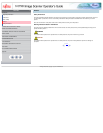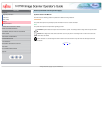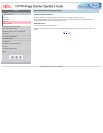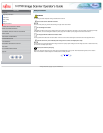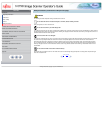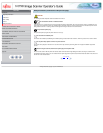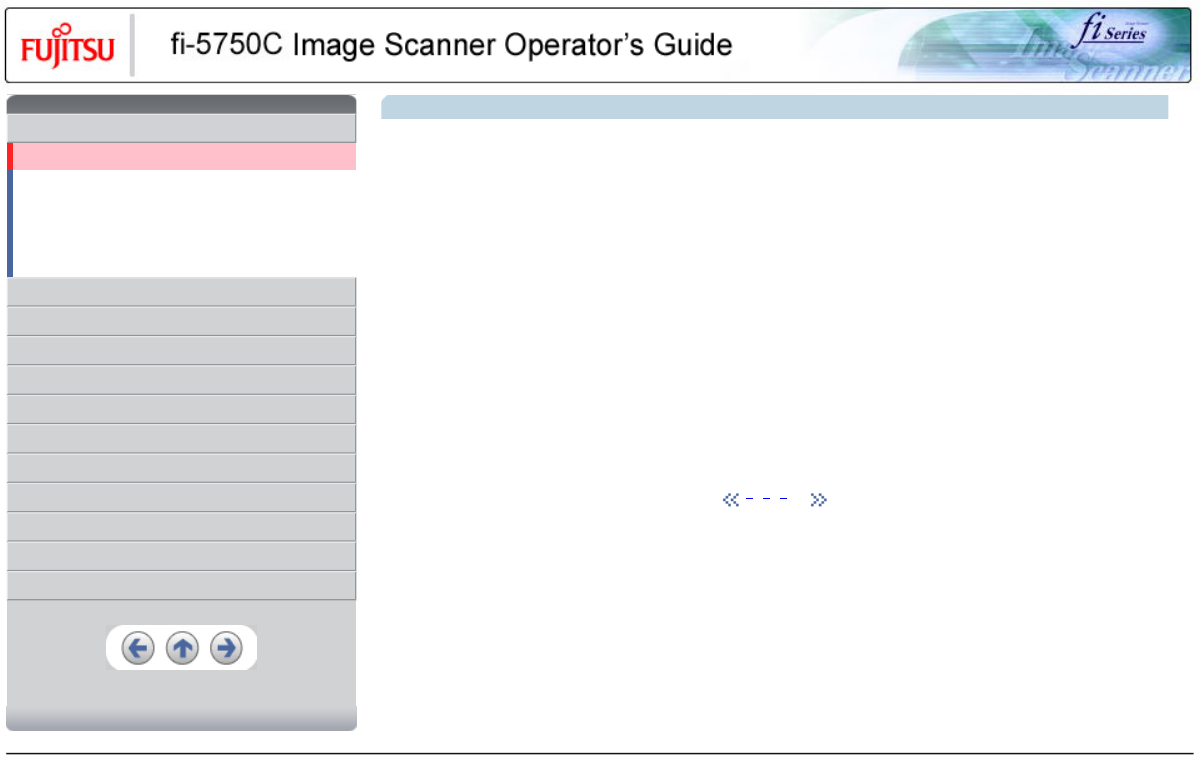
CONTENTS
Introduction
Regulatory Information
Trademarks
Note, Liability
Preface
Safety Precautions
1 NAMES AND FUNCTIONS OF PARTS
2 BASIC SCANNER OPERATION
3 SCANNING VARIOUS TYPES OF DOCUMENTS
4 DAILY CARE
5 REPLACING CONSUMABLES
6 TROUBLESHOOTING
7 ONLINE SETUP
8 DOCUMENT SPECIFICATION OF ADF
9 OPTIONS
10 SCANNER SPECIFICATIONS
Appendix
Regulatory Information (Continued from the previous page)
Use in High-safety Applications
This product has been designed and manufactured on the assumption that it will be used in office, personal, domestic, regular industrial, and
general-purpose applications. It has not been designed and manufactured for use in applications (simply called "high-safety applications"
from here on) that directly involve danger to life and health when a high degree of safety is required, for example, in the control of nuclear
reactions at nuclear power facilities, automatic flight control of aircraft, air traffic control, operation control in mass-transport systems, medical
equipment for sustaining life, and missile firing control in weapons systems, and when provisionally the safety in question is not ensured. The
user should use this product with adopting measures for ensuring safety in such high-safety applications. PFU LIMITED assumes no liability
whatsoever for damages arising from use of this product by the user in high-safety applications, and for any claims or compensation for
damages by the user or a third party.
About the use of mercury
The scanner lamp contains mercury.
To avoid unexpected injury, read the following carefully.
Doing the following actions may result in serious personal injuries:
● Do not put the substance in the lamp in your mouth as it contains mercury.
● Do not incinerate, crush, or shred the scanner.
● Do not breathe the chemical liquid contained in the scanner parts.
Disposing of the scanner should be conducted as required by local ordinances or regulations.
1 | 2 | 3 | 4
All Rights Reserved, Copyright (C) PFU LIMITED 2003



